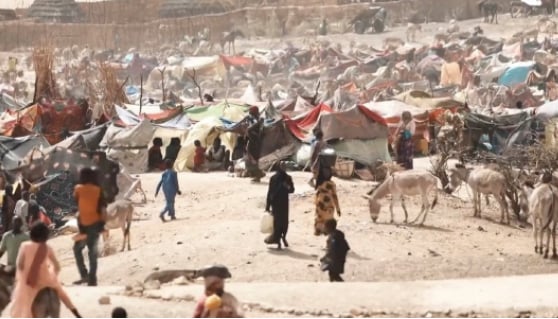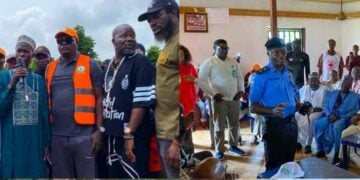With the arraignment of nine persons by the Department of State Services (DSS) in connection with the killings in Benue and Plateau states, the nation may well be inching closer to untying the Gordian knot which the seemingly intractable killings in these two states have become.
The DSS recently arraigned Terkende Ashuwa and Amos Alede, both from the Guma local government area of Benue state, for allegedly embarking on a reprisal attack in Ukpam village, and Halima Haliru Umar from Faskari LGA of Katsina State, for allegedly concealing information about a suspected gunrunner and kidnapper.
Silas Iduh Oloche of Agatu local government area of Benue State was also arraigned for unlawful possession of 18 firearms, including grenades; 75-year-old Nanbol Tali and Timnan Manjo, from Plateau State, for allegedly trading two locally fabricated AK-47 rifles worth N3 million without a licence; and 62-year-old Danjuma Antu from Jos North LGA of Plateau, for allegedly possessing two locally made pistols designed to fire 9mm rounds.
Essentially, this arraignment indicates a radical break from the past, where very little or nothing is heard about the prosecution of persons suspected of being behind the prolonged killings in the Plateau and Benue states, which have led to the loss of thousands of lives and the destruction of properties worth hundreds of millions.
According to Amnesty International, out of the over 10,217 people killed since the President Bola Ahmed Tinubu administration came to power, more than 70 per cent are from Benue and Plateau states, which record vicious attacks.
Benue and Plateau states have continued to witness a steady rise in killings of innocent citizens by persons whose motive seems to be killing for the fun of it. Communities in these states have witnessed sustained attacks which left behind wailing and gnashing of teeth arising from colossal loss of lives and property.
In Benue, for instance, where there are internally displaced persons (IDPs) camps in 13 of the state’s 23 local government areas, it was reported that from January to July this year, there have been no fewer than 40 attacks that occurred in communities across the worst-hit local government areas.
The gory tales of killings at Yelwata, Guma council area of the state, where over one hundred persons, including women and children, were killed, are still fresh in the minds of many, especially families directly affected. Some families have spent close to two decades at the IDPs camps.
In Plateau State, the nation’s home of peace and tourism, communities at Bokkos, Barkin-Ladi, Mangu, Riyom, Quaan-Pan, among others, are witnessing sustained killings. The killings in Benue and Plateau specifically impact the nation’s food security drive and impede revenue from tourism, respectively.
Well-meaning Nigerians, and specifically, victims of these killings, have long been waiting for justice to be served on those behind it. The arraignment of these suspects by the DSS provides a ray of hope that those connected with these killings, no matter how remote and highly placed, would be fished out and made to face the full wrath of the law.
It is a given that the arraignment of these suspects demonstrates the government’s commitment to getting to the root of the killings in these two states and perhaps other parts of the country. We have said repeatedly that the government’s failure to prosecute terrorists and their financiers is one of the reasons these acts of criminality have continued unabated. The lukewarm attitude in this regard must change. And it is gratifying to note that the secret police is leading the charge towards the much-needed change.
As a newspaper, we laud the DSS for this giant leap, which, if diligently handled, will change the narrative about senseless killings in the country. The fact that some suspects pleaded guilty to their charges showed that the secret police had conducted a clinical investigation and had concrete evidence against them before charging them in court.
However, beyond the euphoria that greets their arraignment, the DSS must ensure diligent prosecution of the suspects, with all their fundamental rights fully guaranteed. They should be allowed to prove their innocence, failing which they should be served justice if found wanting.





